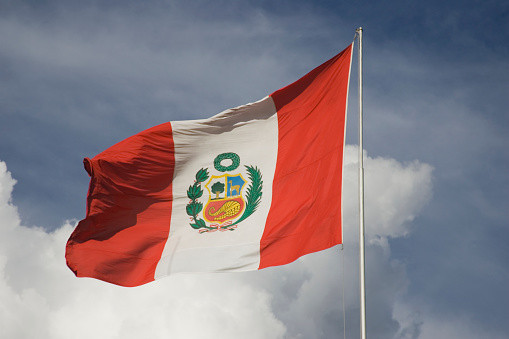
In an effort to quell large-scale protests that began in December 2022, Amnesty International claims that Peruvian security forces used "extrajudicial executions" and "widespread use of lethal ammunition" against demonstrators earlier this year.
Between Dec. 7, 2022, and Feb. 9, 2023, the rights organization looked into the murders of 25 persons who were murdered in the Puno, Ayacucho, and Apurimac areas. 49 citizens died overall during the demonstrations.
According to a report by Amnesty International, six minors were among the casualties, and many of the victims were under the age of 21.
The impeachment and detention of former President Pedro Castillo in December, together with intense discontent with the country's living circumstances and inequality, served as the catalyst for the Andean nation's weeks-long protest movement.
Although there were protests all around the country, the biggest violence was in the rural and indigenous south, who perceived Castillo's removal as yet another attempt by the coastal elites of Peru to ignore them.
Less lethal force such as tear gas was also used in an "excessive, disproportionate and, sometimes, unnecessary manner," the report states, CNN reported.
Amnesty International claims that throughout the recorded time, the nation's military forces and national police employed deadly force—such as bullets—and forbidden weapons—such as pellets—in "an unlawful manner."
"In none of the cases was evidence found that the deceased person posed a risk to the life or integrity of the officials," the report says.
"In several cases those who were killed, as well as those injured, were mere bystanders or passers-by" the report concludes."
According to evidence gathered by Amnesty International, the injuries that caused the 25 deaths "were sustained on parts of the body where they are most likely to prove fatal, which would indicate that they were not random shots, but intentional."
At least 20 of the 25 fatalities listed by Amnesty International were thought to be the result of extrajudicial killings. 15 of those fatalities were under the age of 21.
According to the autopsy report provided by Amnesty, the first protest victim was a 15-year-old kid named David Atequipe who was shot in the back on Dec. 11 while watching demonstrations in front of the Andahuaylas airport in the Apurimac area.
On Dec. 15, a second 15-year-old, Christopher Ramos Aime, was shot as he crossed the street in Ayacucho. Ramos cleaned gravestones and tombs in the neighborhood cemetery close to the airport while also assisting tourists with flowers.
"They have killed innocent people, my son was innocent, he was crossing the road when they shot him," Hilaria Aime, Christopher's mother said.
"We hope justice is made and people respect us, they are calling us terrorists, vandals and that is not the truth of what happened in Ayacucho."
Amnesty also highlights the loss of 18-year-old football coach Beckhan Quispe, who was shot in the head in December in Andahuaylas, Apurimac area.
Amnesty has also stated that attacks on protestors were conducted "with a marked racist bias" in southern Peru, where protesters encountered a more severe response from the police forces, which resulted in the deaths of dozens.
Similar demonstrations occurred in Lima, the capital of Peru, although just one person was killed.
In response to criticism over how her administration handled the demonstrations, President Boluarte stated in a recent interview with local media that she and her ministers do not determine procedure for the Armed Forces or the Police.
"They have their own law and protocols. Who do they comply with? Their commanders. We don't have any power over them. I can be the Supreme Chief of the Armed Forces, but I have no command (over them) and the protocols are decided by them", Boluarte said.
The White House declined to comment on the report's conclusions when CNN contacted them. Additionally, the interior and defense ministries of Peru have been notified. In February, both ministries informed that they would be unable to comment until the Prosecutor's office had completed its current inquiry.
On Jan. 10, Peru's prosecutor's office started a preliminary inquiry into allegations of genocide, homicide, and serious injuries perpetrated during the protests against President Boluarte, Prime Minister Alberto Otarola, and other officials.
The President has been invited to deliver her evidence at the Prosecutor's office on May 31, according to Boluarte's office, which informed CNN en Espaol on Wednesday.
This final report also condemned Peru's Public Prosecutor's office for failing to conduct "promptly, thoroughly, and impartially" criminal investigations into the protest killings.
© 2025 Latin Times. All rights reserved. Do not reproduce without permission.




